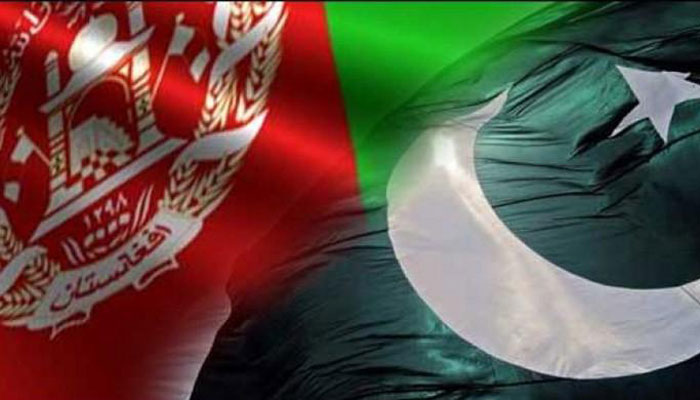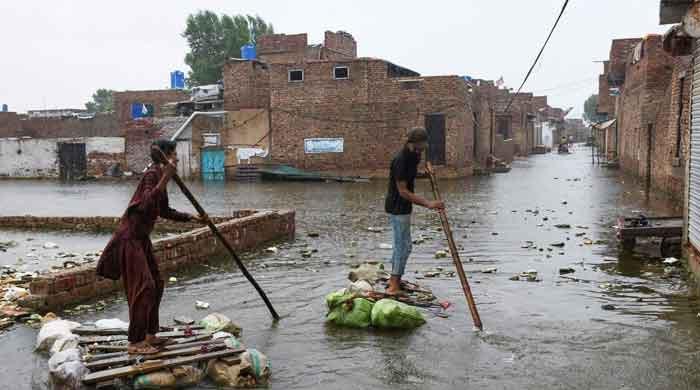Back to policy basics
Pakistan seems to be ignore that without a stable government in Afghanistan, no one there can ensure that its land will not be used against us
October 01, 2017

Despite all my efforts, I must admit my inability in spotting the underlying logic of Pakistan’s Afghan policy. If the objectives of the policy were to check the influence of India in Afghanistan, then we need to admit that the influence has increased from what it was in the 1980s.
If the objectives were to have a superior position in bilateral relations, in that case too the policy has yielded no fruits. Afghanistan has more anger and resentment against Pakistan than it did in the 1970s. Pakistan’s influence is waning in Afghanistan to the degree that people like Gulbaddin Hekmatyar are now unable to utter anything positive about Pakistan. Lastly, if the objectives of Pakistan’s Afghan policy were to ensure that Afghanistan’s territory should not be used against Pakistan in that too the policy backfired. Compared to the 1970s the intensity and frequency of such violations from Afghanistan has increased. So if the policy failed to achieve any of its stated or projected objectives, why does it continue?
Equally unfortunate and illogical is the story on the other side of the border. Afghanistan’s policy towards Pakistan has also backfired in many ways. If the objectives of Afghanistan in its ties with India were to force and dictate Pakistan, it is apparent that Afghanistan has failed. Rather, the country lost the support and cooperation of Pakistan. Every negative move from Afghanistan is paid in the same currency from Pakistan. By keeping a negative stance towards Pakistan, Afghanistan has not achieved any success in improving conditions for peace or in defeating the Taliban or even in rapprochement efforts with the Taliban. In fact, now, beside the Taliban, they have to face Daesh as well.
Afghanistan used to blame Pakistan for its alleged support to militants; it has now added Russian and Iran to this list too. So, it is obvious that annoying Pakistan and getting closer to India did not bring much good to Afghanistan. In the end, we are faced with the same policy dilemma and question in Afghanistan too. If their policy towards Pakistan is defunct, why does it still continue?
Pakistan seems to be ignoring the fact that without a stable government in Afghanistan, no one there can ensure that its land will not be used against Pakistan. Afghanistan too seems to ignore the fact that any government in Afghanistan that establishes such love affairs with India would never find much support in Pakistan. In the same way, policymakers at both sides of the border don’t see that Pakistan’s peace and stability is impossible without peace in Afghanistan – and vice versa. Pakistani policymakers do not realise that Afghanistan in its worst set of policies would never be as dangerous as India; and Afghan policymakers can’t see that even the most favoured relations with India cannot replace relations with Pakistan.
There are some attitude issues too. Pakistan is always ready to absorb pressure and policy responses from both the US and China. But when it comes to Afghanistan, Pakistan doesn’t allow a single bitter word without response. The same is the case with Afghanistan, which accepts bitter dictates from the US and even from Russia, the UK and Germany. At times, it seems that the Afghan leadership compromises their national interests, here and there, even in favour of Indian policy. But when it comes to Pakistan, every Afghan leader sees it as an insult to accommodate or compromise even on minor issues.
Both our countries need to adjust to each other in a mature manner. If we think that Afghanistan has worked against our interests many times, we should also accept the fact that the US has been far more fickle with us. Why have we never planned to retaliate on that? If we admit that Pakistan may have interfered in the internal affairs of Afghanistan, then our Afghan brothers must also ask themselves if any such interventions equal the meddling by the USSR and US. Why has the Afghan leadership never thought about the same policy response for Russia and the US that they have reserved for Pakistan?
Similarly, if Pakistan is upset that, despite the goodwill extended by it, Afghanistan has ended up establishing close relations with India, the story is the same in the case of Iran. But that doesn’t mean Pakistan tries to ensure a pro-Pakistani government in Iran. In this case too, the story is the same on the other side of the border. The Afghans say that Pakistan committed blunders in its Afghan policy that proved hazardous to Afghanistan, but then they also need to calculate the number of blunders from the USSR and US in their dealings with Afghanistan and the consequent tragedies for Afghanistan. If Russia and Iran are now seeing the Taliban as an asset, is that due to the Pakistan factor or because of US installations in Afghanistan? And, lastly, if it is about attitude, why is all condemnation reserved for Pakistan and none against others, like the US.
The fact really is that Pakistan has no policy for Afghanistan and Afghanistan has no policy for Pakistan. All we see is mere ‘responses’ and ‘adjustments’. Pakistan changes this so-called policy every day, as does Afghanistan. In Pakistan, if one policy on Afghanistan suits one institution or leader, it panics the other. Governments on both sides of the border are not free in policy formulation as they have to sustain and absorb a number of conflicting internal and external interests and pressures.
It is unfortunate that for the last 16 years Pakistan’s policy for Afghanistan has not been based on merit but seen through the lenses of the US. Afghanistan too has adopted the American perspective on Pakistan in the formulation of its Pakistan policy. Pakistan had been under the illusion that if its policy could win over the US, it would be accepted by Afghanistan as well. Afghanistan has also been careless in its moves regarding Pakistan, thinking that if anything were to go wrong, the US would be there to handle it. This led to a state of affairs where both neighbours constantly turned to the US for their complaints against each other. All this has now resulted in a complete disaster, with the US equally annoyed with both Pakistan and Afghanistan. US President Donald Trump has warned Pakistan while also distancing the US from its reconstruction pledge for Afghanistan.
All this points towards an even bigger disaster: that the US is now completely confused over Afghanistan. Pakistan and Afghanistan don’t have any meaningful policy on each other, and now the US too seems to lack one on either country. The Americans have no clear plan for Afghanistan; they are not clear on how to deal with the Taliban and they are confused on whether to stay on or leave Afghanistan. One thing is obvious: if no clear and real solution is planned and implemented in Afghanistan, the resultant disaster could be the disaster.
If any such thing happens it will not directly disturb the US, Iran, Russia or even China. But Afghanistan and Pakistan will definitely face its direct and unavoidable consequences. This is when Afghanistan and Pakistan need to sit together and understand that if Pakistan fails to ensure Afghanistan’s stability and Afghanistan fails to address Pakistan’s reservations, then both countries will face unimaginable loss. Traditional diplomatic tactics are useless in the current situation. Both countries must sit together and accept their wrongdoings. It will be even better if China helps the process – not as arbitrator but as guarantor.
We can only hope that the leadership of both countries follow the path of reason, and refrain from cynicism, for the larger interests of both nations and for the millions of people residing in this region. One hopes that Gen Qamar Javed Bajwa’s visit to Kabul will help towards this new beginning.
— Originally appeared on The News
The writer works for Geo TV.
Email: saleem.safi@janggroup. com.pk











